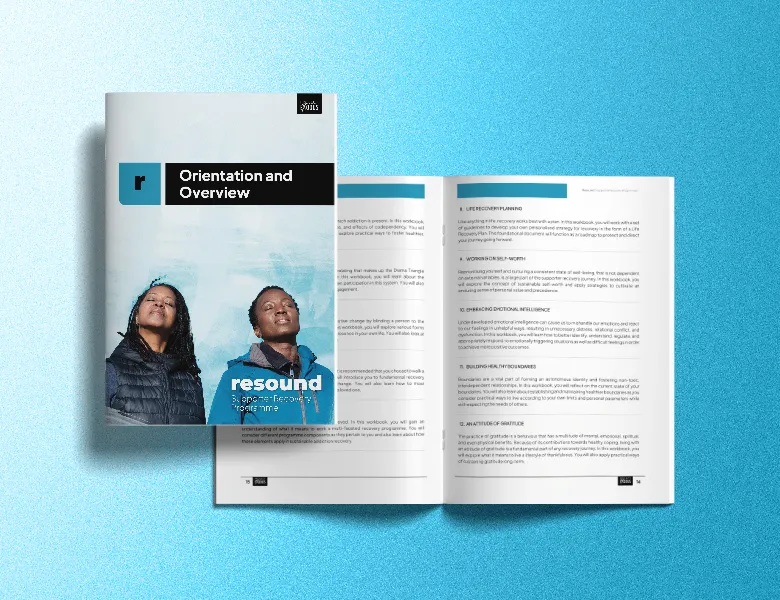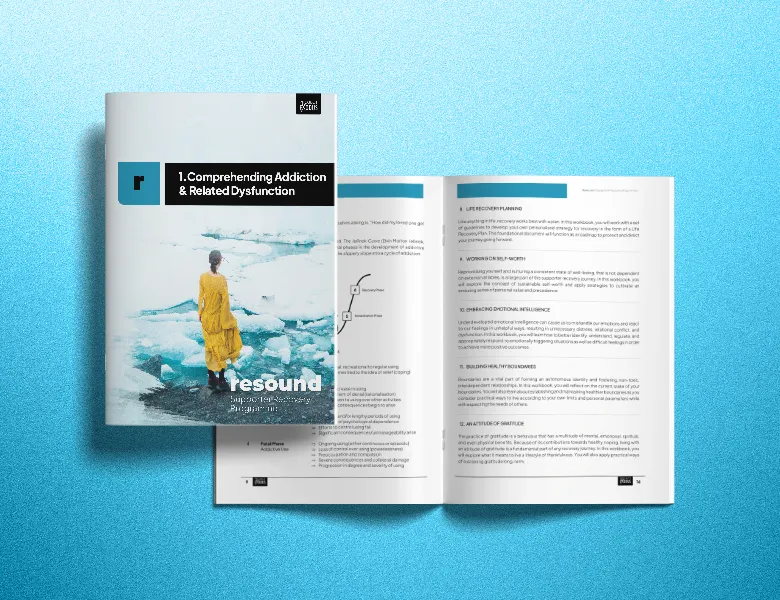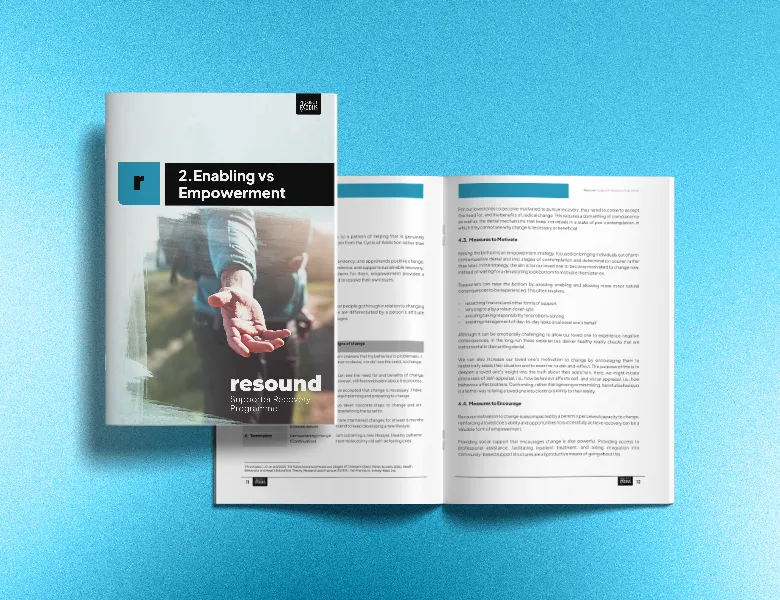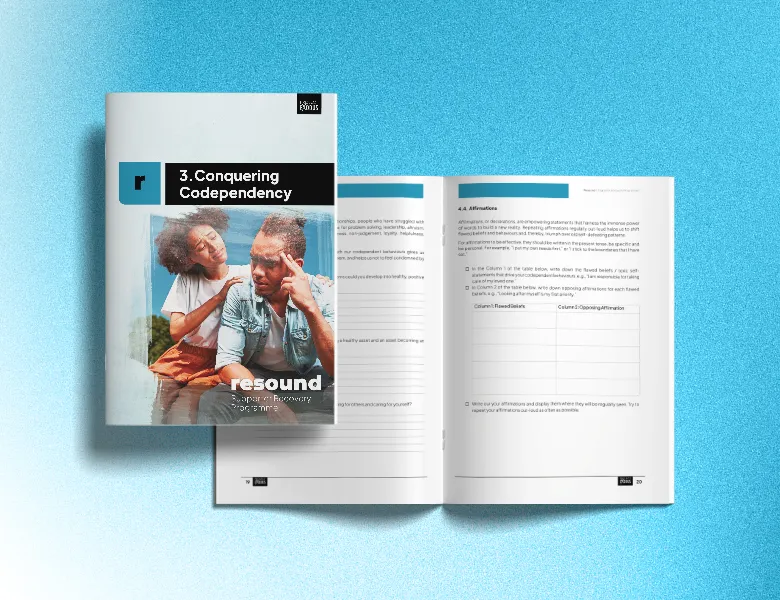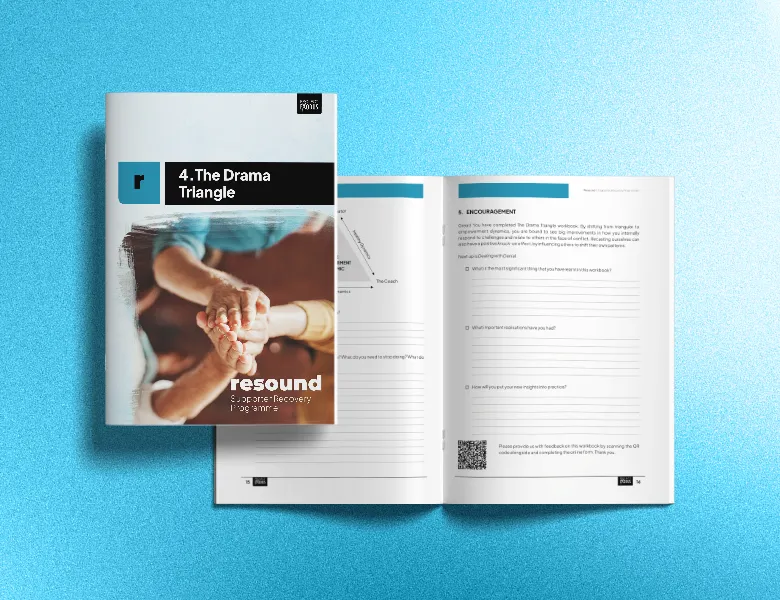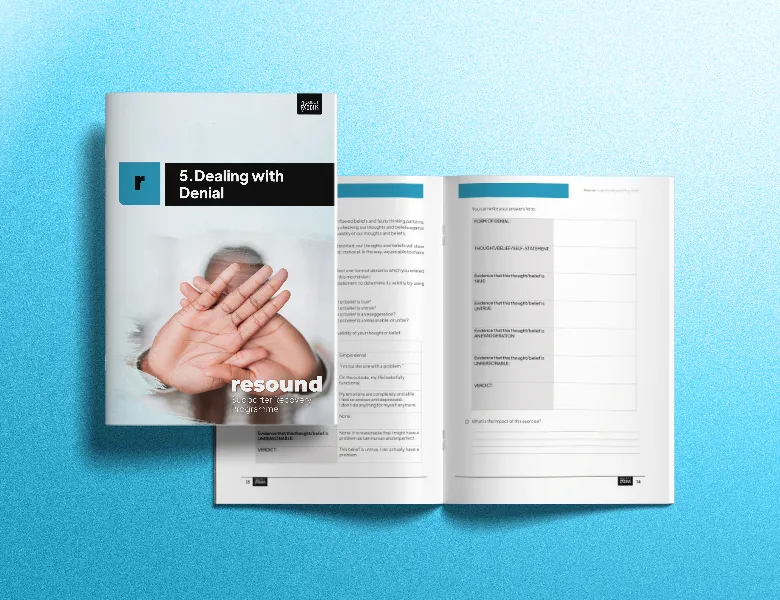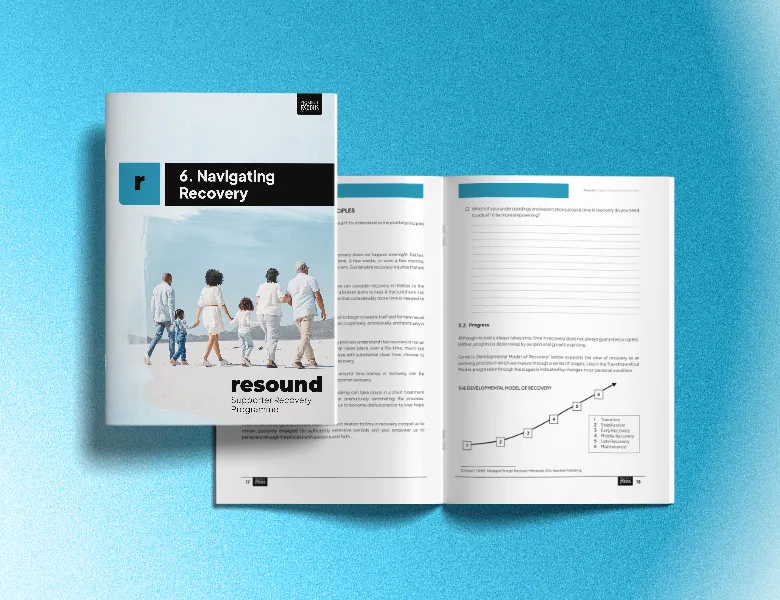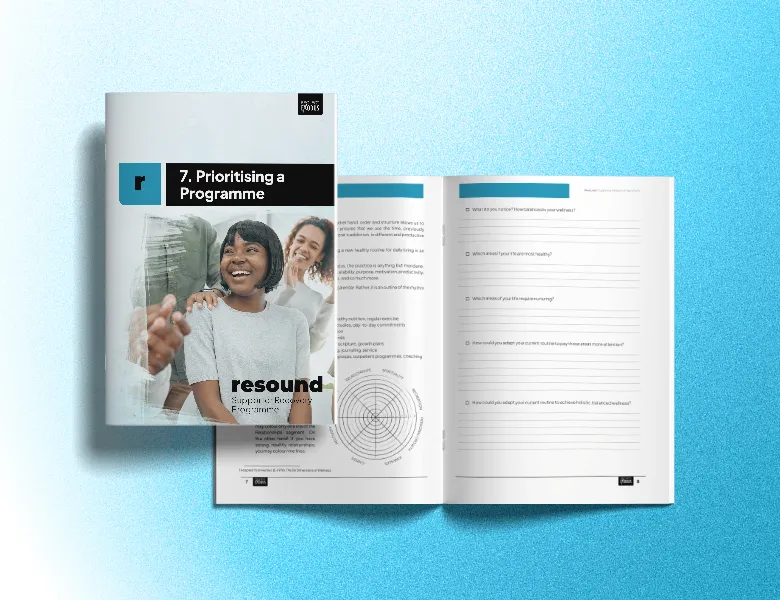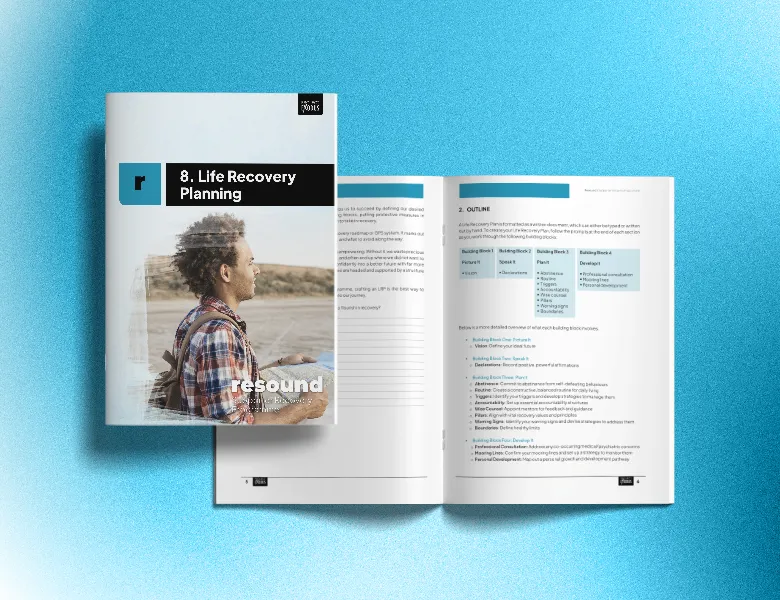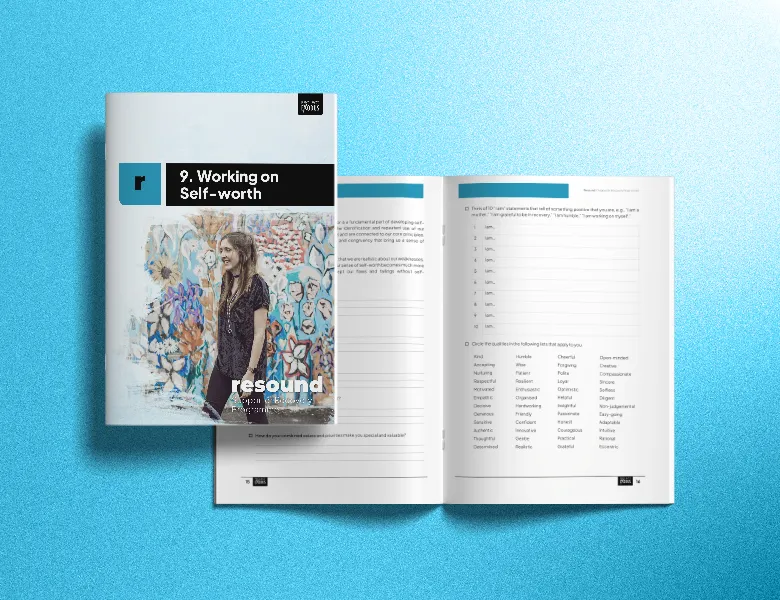Resound
A comprehensive supporter recovery programme for those impacted by a loved one's addiction. Equipping family and friends with essential insights and tools for their own healing journey, focusing on personal wellbeing and restoration.
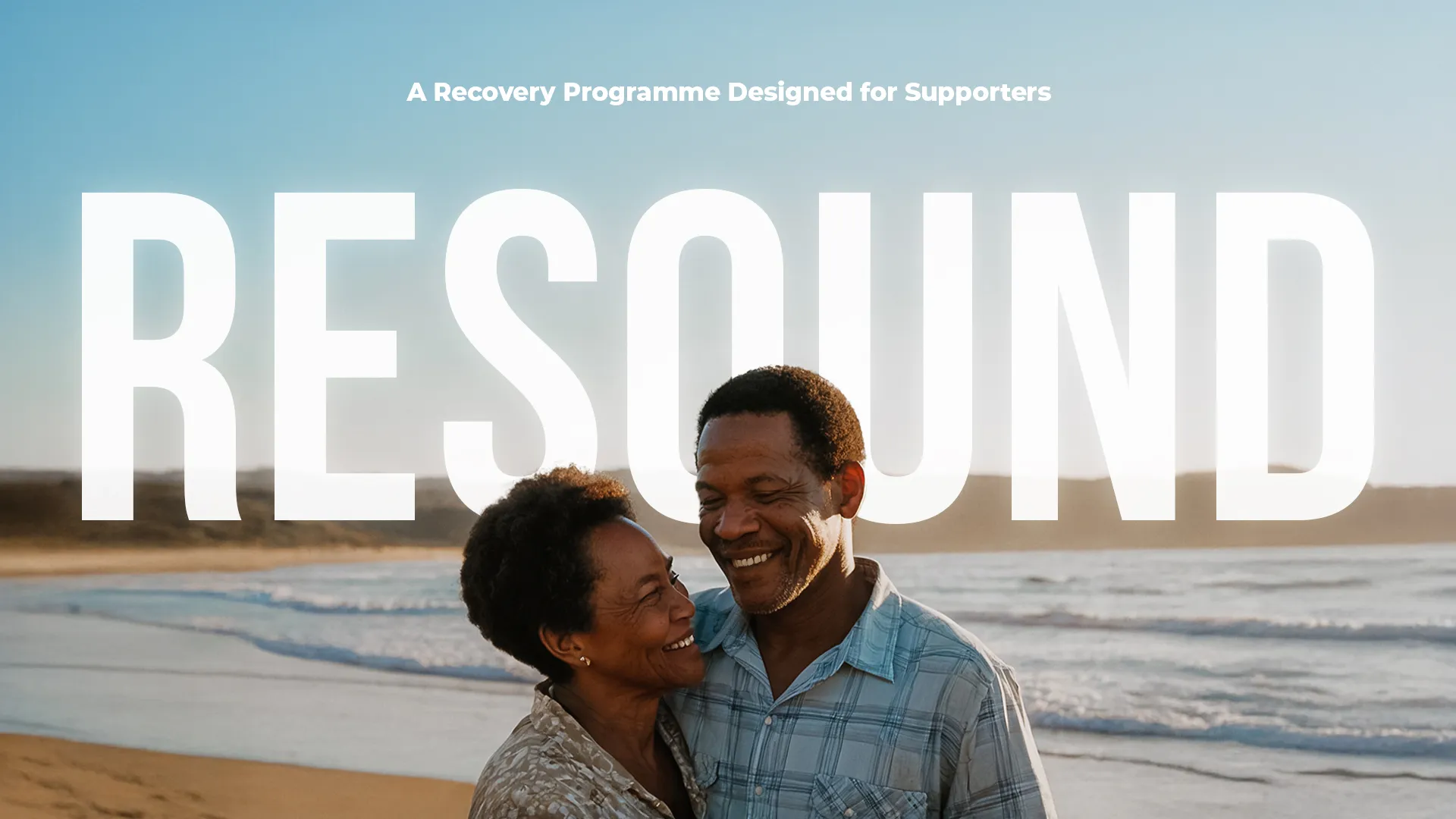
Explore the Resound
Programme Workbooks
The Resound journey unfolds through 13 carefully crafted workbooks, each building on the previous to create a comprehensive supporter recovery pathway. These modules provide practical tools addressing the complex impact of loving someone with addiction, forming a complete framework for personal healing and effective support.
How to Access Resound
The Resound programme provides pathways to healing for family members, friends, and supporters affected by a loved one's addiction. Whether you're seeking personal recovery or want to guide others through their journey, discover how to engage with this life-changing programme.
Group Access
Connect with others who understand what you're experiencing. Resound groups offer validation, shared wisdom, and accountability in a safe, confidential environment led by trained facilitators who guide the supporter recovery process.
Facilitator Access
Empower others on their supporter recovery journey. Complete our comprehensive training and access all Resound resources through the Bridge platform to lead impactful recovery programmes.
The Methodology
A comprehensive approach that addresses knowledge, personal insight, and practical implementation for effective supporter addiction recovery.

Helpful Resources
Explore our collection of complimentary materials designed to build understanding and provide practical support for those affected by a loved one's addiction. Resources available for both individuals and facilitators.
Participant Feedback
Feedback from participants engaging with the Resound programme - real stories of how the workbooks have impacted their recovery.





FAQs
Here are some common questions about the Resound programme and its implementation.
Yes, absolutely. Resound is specifically designed for your healing journey, independent of where your loved one is in their addiction or recovery process. The programme focuses on your wellbeing and recovery, helping you develop healthy boundaries, overcome codependency, and find peace regardless of your loved one's choices. Many participants find Resound most valuable precisely when their loved one isn't yet seeking help, as it provides tools to navigate this challenging circumstance.
Resound takes a comprehensive, multi-dimensional approach that goes beyond traditional support groups. While many programmes focus primarily on how to help the addicted person, Resound recognizes that supporters need their own recovery pathway. Our 13-workbook curriculum addresses not just education about addiction, but deeper issues like codependency, enabling, boundary-setting, emotional intelligence, and self-worth. The programme treats supporter recovery as a legitimate journey in its own right, not merely an adjunct to the addicted person's recovery.
No. Resound focuses on your experience and recovery, not the specifics of your loved one's addiction. While you're welcome to share as much as you feel comfortable with, the programme emphasises your feelings, reactions, and patterns rather than the details of your loved one's behaviour. Facilitators create a safe environment where confidentiality is respected, and you always maintain control over what and how much you share. Many participants find relief in being able to discuss their situation without feeling they're betraying their loved one's privacy.
Facilitators must complete three training courses: Small Group Facilitation Training, Addiction Recovery Training Intensive, and Resound Facilitation (approximately 30 hours total). All training is available through Bridge on our Online Academy.
Yes, with certain parameters. The Resound programme is designed to be flexible while maintaining the integrity of its core principles. Your church or organisation can integrate the programme into existing care ministries, customise the meeting schedule, and contextualise discussions to reflect your community's needs and values. However, to ensure effectiveness, we ask that you maintain the workbook sequence and core content.
The standard timeframe is 4-6 months, with groups typically meeting weekly for 1.5-2 hours to work through the 13 workbooks. However, the programme can be adapted to different paces based on the needs of participants. Some groups choose to spend additional time on certain modules that resonate strongly with their experiences. Resound is designed as both a structured programme and an ongoing journey—many participants continue to meet after completing the curriculum, creating lasting supportive communities.
No, Resound is for anyone significantly impacted by a loved one's addiction. This includes parents, adult children, siblings, extended family members, and close friends. The programme addresses universal dynamics that occur in relationships affected by addiction, while providing space to apply principles to your specific relationship context. The diverse perspectives in Resound groups often provide valuable insights across different types of relationships.
Still have questions?
We're here to help!
